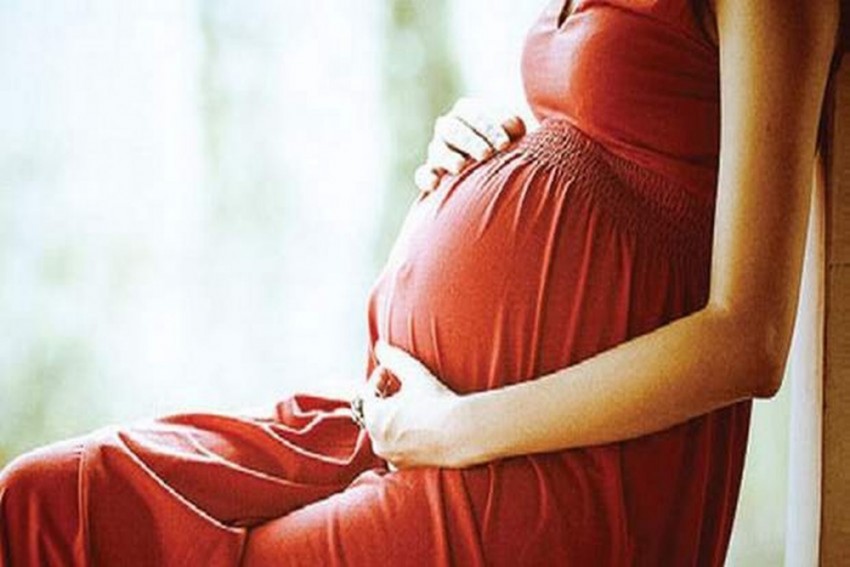
Pregnant women can and should get vaccinated, says Govt. But should they?
The Union Health Ministry has gone back on an earlier decision and given the nod for pregnant women to get vaccinated. According to a recent statement issued by the Health Ministry, pregnant women “can and should” take the COVID-19 vaccine.

The Union Health Ministry has gone back on an earlier decision and given the nod for pregnant women to get vaccinated. According to a recent statement issued by the Health Ministry, pregnant women “can and should” take the COVID-19 vaccine.
Earlier, the government had clearly voiced their concerns and cautioned pregnant women not to take the COVID-19 vaccine. They had reasoned back then that there was lack of safety data since they had not been part of the COVID vaccine trials. There was no clarity yet on whether it could cause miscarriage, low birth weights, preterm, still births and congenital anomalies.
But after a recent meeting of the National Technical Advisory Group on Immunisation (NTAGI), it was recommended that pregnant women should also be vaccinated since “exposure probability is very high” and the “benefit far outweighs the risk”, said media reports.
Also read: Cipla gets nod to import Moderna’s vaccine for restricted use in India
Moreover, The Times of India quoted Dr Balram Bhargava, ICMR chief, who said, “Vaccination is useful for them and should be given”. This approval will bring relief from anxiety of the high risk of disease and death to more than 2.5 crore mothers who give birth in the country every year.
India is the 18 th country in the world to recommend COVID-19 vaccines to pregnant women. A COVID Maternal Immunization tracker (COMIT) showed that 28 other countries “permit” COVID vaccines in pregnancy, another 46 either “permit with restrictions or deny with some exceptions”.
COVID is riskier for pregnant women
Further, the TOI report pointed out that India had very sparse data to work on to give its approval for vaccination during pregnancy. This is because during the two COVID waves in India since March 2020, studies had shown that COVID is riskier for pregnant women than for most other people.
In fact, the World Health Organization (WHO) too had issued a cautionary note that pregnant women who are above the age of 35 and are obese or have other complications like diabetes or hypertension “are at particular risk of serious outcomes with COVID-19”.
This view was echoed by the US Centres for Disease Control and Prevention (CDC) last year. Their data analysis showed them that pregnant women who had COVID seemed to be more frequently ending up in ICU getting invasive ventilation and ECMO. What was worrying was that they concluded that there was a “70 per cent increased risk for death associated with pregnancy”.
Moreover, India also had to contend with the fact that only one out of the three vaccines –Covishield – used in the country is approved by WHO. Hence, only two other countries, Canada and Mexico were recommending Covishield for pregnant women, while Austria, Iceland and Croatia were permitting it in pregnancy.
In short, this gave India meagre data on the vaccine’s efficacy and safety on pregnant women. However, the UK’s Royal College of Obstetricians and Gynaecologists has reportedly put all the doubts to rest with their observation that there are “no reported concerns” with the Astra Zeneca vaccine (Covishield) in pregnancy. But, they also admitted that there is less experience in pregnancy with this vaccine as compared to Pfizer and Moderna vaccines.
Also read: India goes past US in number of vaccines administered
And, rounded it up with a reassurance that studies done on animals to study the effects on pregnancy have not thrown up any evidence that it harms the pregnancy or fertility.
The primary reason that countries, which offer Covishield, (there are 35 of them) are wary of giving the vaccine to pregnant women is because pregnant women are usually vulnerable to blood clots and vaccines like Covishield are also known to increase risk of blood clotting. However, the RCOG debunks this theory and claimed that the two types of clots are not related. “Someone is not necessarily at a higher risk of this serious side-effect just because they have a higher risk of other blood clots’, TOI quoted.
Covaxin and Sputnik on pregnancy
Covaxin, which is made with a killed virus and has an established safety profile in pregnant women, was considered to be the first choice for pregnant women in India. However, in the latest statement issued by the Ministry, they did not make any distinction between Covaxin and Covishield for pregnant women. According to the TOI report, Sputnik is available to pregnant women only in four countries. Mexico being the only country that recommends it, while Argentina and Honduras allow it only with conditions.
However, NTAGI has recommended the following safety precautions for pregnant women:
They should be fully informed that “the long-term adverse reactions and the safety of the vaccine for foetus and child are not yet established.” And, it is recommended that they follow the 30 minutes of in-hospital observation rule post-vaccination. Moreover, it is best they first consult with their gynaecologist before taking the COVID-vaccine.
Bottomline: Though there are not enough vaccine trials done for pregnancy in India, pregnant women account for a large 5 per cent of our population, said an Indian Express report. Therefore, the government and health experts feel that it is worthwhile to get them vaccinated. Earlier, pregnant women in India did not have a choice, now they do and can make their own decision in consultation with their gynaecologist.

